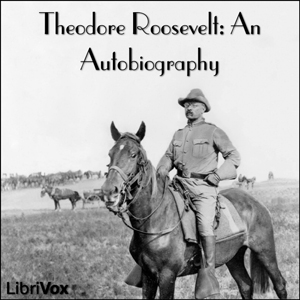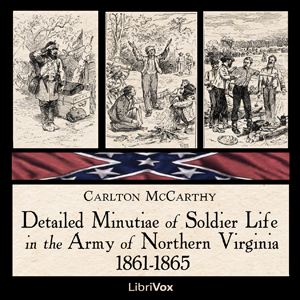- Preface; The Street-Folk - part 1
- The Street-Folk - part 2
- The Street-Folk - part 3
- The Street-Folk - part 4
- The Street-Folk - part 5
- The Street-Folk - part 6
- The Street-Folk - part 7
- The Street-Folk - part 8
- The Street-Folk - part 9
- The Street-Folk - part 10
- The Street-Folk - part 11
- The Street-Folk - part 12
- The Street-Folk - part 13
- The Street-Folk - part 14
- The Street-Folk - part 15
- The Street-Folk - part 16
- The Street-Folk - part 17
- The Street-Folk - part 18
- The Street-Folk - part 19
- The Street-Folk - part 20
- The Street-Folk - part 21
- The Street-Folk - part 22
- The Street-Folk - part 23
- The Street-Folk - part 24
- The Street-Folk - part 25
- The Street-Folk - part 26
- The Street-Folk - part 27
- The Street-Folk - part 28
- The Street-Folk - part 29
- The Street-Folk - part 30
- The Street-Folk - part 31
- The Street-Folk - part 32
- The Street-Folk - part 33
- The Street-Folk - part 34
- The Street-Folk - part 35
- The Street-Folk - part 36
- The Street-Folk - part 37
- The Street-Folk - part 38
- The Street-Folk - part 39
- The Street-Folk - part 40
- The Street-Folk - part 41
- The Street-Folk - part 42
- The Street-Folk - part 43
- The Street-Folk - part 44
- The Street-Folk - part 45
- The Street-Folk - part 46
- The Street-Folk - part 47
- The Street-Folk - part 48
- The Street-Folk - part 49
- The Street-Folk - part 50
- The Street-Folk - part 51
- The Street-Folk - part 52
- The Street-Folk - part 53
- The Street-Folk - part 54
- The Street-Folk - part 55
- The Street-Folk - part 56
- The Street-Folk - part 57
- The Street-Folk - part 58
- The Street-Folk - part 59
- The Street-Folk - part 60
- The Street-Folk - part 61
- The Street-Folk - part 62
- The Street-Folk - part 63
- The Street-Folk - part 64
- The Street-Folk - part 65
- The Street-Folk - part 66
- The Street-Folk - part 67
- The Street-Folk - part 68
- The Street-Folk - part 69
- The Street-Folk - part 70
- The Street-Folk - part 71
- The Street-Folk - part 72
- The Street-Folk - part 73
- The Street-Folk - part 74
- The Street-Folk - part 75
- The Street-Folk - part 76
- The Street-Folk - part 77
- The Street-Folk - part 78
- The Street-Folk - part 79
- The Street-Folk - part 80
- The Street-Folk - part 81
- The Street-Folk - part 82
- The Street-Folk - part 83
- The Street-Folk - part 84
- The Street-Folk - part 88
- The Street-Folk - part 85
- The Street-Folk - part 86
- The Street-Folk - part 87
- The Street-Folk - part 89
Subtitled, "A Cyclopaedia of the condition and earnings of those that will work, those that cannot work, and those that will not work."
"The history of a people from the lips of the people themselves .. their labour, earnings, trials and sufferings, in their own unvarnished language, and to pourtray the condition of their homes and their families by personal observation of the places ..." "My earnest hope is that the book may serve to give the rich a more intimate knowledge of the sufferings, and the frequent heroism under those sufferings, of the poor ..."
Henry Mayhew was a social researcher and journalist; he compiled a four volume work in minute detail on the lives of the poor in London, of which this is the first volume, published in 1851.
(Peter Yearsley)
Notes: 1 The reader has attempted different voices to separate the interviewees from the narrator, but makes no claim to the accents being appropriate to the speakers.
2 Very occasionally, the language used may be uncomfortable to a modern listener.
3 Sections 34, 52, and 89 consist of analyses of the data collected in the preceding sections. Mayhew himself implies that it might not be too interesting for some of his readers. Listeners to this recording could miss out these sections without fear that they are missing much.
4 Where expletives and proper names have been abbreviated in the text as, for example, "D---d", or "Mrs M---", these have been rendered as "D blank D" and "Mrs M blank" as appropriate.
5 There are some pages of errata at the end of the book, which mainly involve corrections to the many numbers given in the text. The corrections have been included in the recording. However, many arithmetical errors still exist; these have been left unchanged.
Definitions and slang:
1 In Mayhew's time, a chandler was a dealer in household items such as oil, soap, paint, and groceries.
2 "ing-uns" are frequently mentioned as being sold by the costermongers. This is clarified in the text as being their name for onions.
3 The phrase "Han-sellers" in section 55 is clarified as "hand-sellers" in a later section.
4 A "pottle" is a volume of half a gallon (four pints).
5 A quartern loaf weighs four pounds.
6 "Sawney" is bacon.
7 "Tin" is a nickname for money in general, while a "brown" is the nickname for a copper/bronze coin (a farthing, half-penny, penny, etc.). 8 A "wink" seller sells periwinkles.
9 "Woman- (or girl-) of the streets" seems often to be a euphemism for prostitutes.
Notes: 1 The reader has attempted different voices to separate the interviewees from the narrator, but makes no claim to the accents being appropriate to the speakers.
2 Very occasionally, the language used may be uncomfortable to a modern listener.
3 Sections 34, 52, and 89 consist of analyses of the data collected in the preceding sections. Mayhew himself implies that it might not be too interesting for some of his readers. Listeners to this recording could miss out these sections without fear that they are missing much.
4 Where expletives and proper names have been abbreviated in the text as, for example, "D---d", or "Mrs M---", these have been rendered as "D blank D" and "Mrs M blank" as appropriate.
5 There are some pages of errata at the end of the book, which mainly involve corrections to the many numbers given in the text. The corrections have been included in the recording. However, many arithmetical errors still exist; these have been left unchanged.
Definitions and slang:
1 In Mayhew's time, a chandler was a dealer in household items such as oil, soap, paint, and groceries.
2 "ing-uns" are frequently mentioned as being sold by the costermongers. This is clarified in the text as being their name for onions.
3 The phrase "Han-sellers" in section 55 is clarified as "hand-sellers" in a later section.
4 A "pottle" is a volume of half a gallon (four pints).
5 A quartern loaf weighs four pounds.
6 "Sawney" is bacon.
7 "Tin" is a nickname for money in general, while a "brown" is the nickname for a copper/bronze coin (a farthing, half-penny, penny, etc.). 8 A "wink" seller sells periwinkles.
9 "Woman- (or girl-) of the streets" seems often to be a euphemism for prostitutes.
There are no reviews for this eBook.
There are no comments for this eBook.
You must log in to post a comment.
Log in











